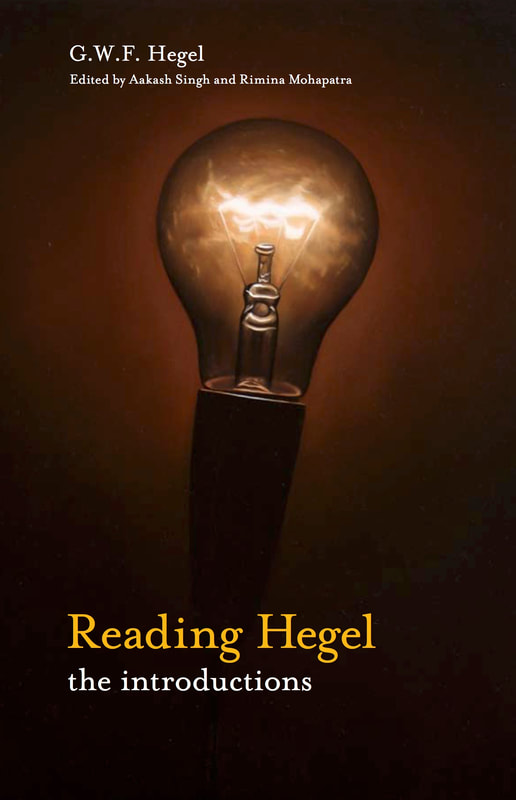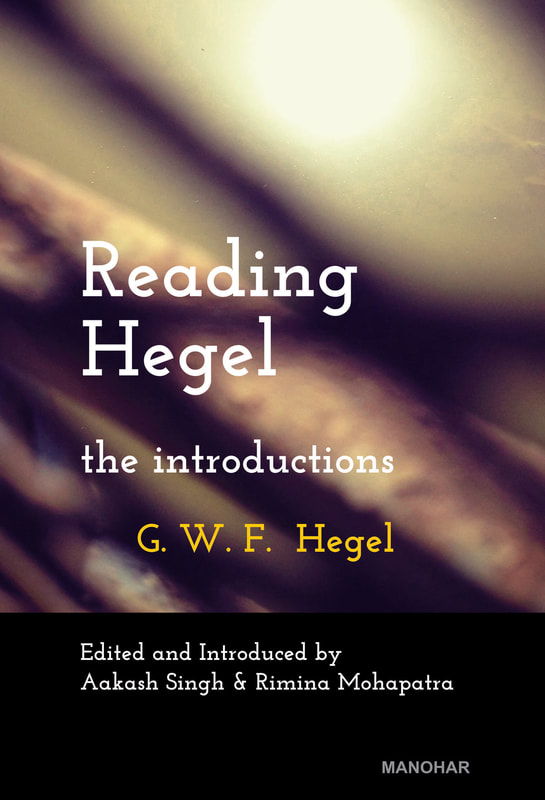- Home
-
Books
- Becoming Babasaheb
- Ambedkar’s Preamble
- Vision for a Nation
- A Philosophy of Autobiography: Body & Text
- Dalit Feminist Theory
- B.R. Ambedkar: The Quest for Justice
- Plato’s Labyrinth
- Hegel's India
- Wronging Rights?
- Hegel's India - Reviews
- Indian Political Theory
- Global Justice
- Rethinking Indian Jurisprudence
- Indian Political Thought
- Discoursing the Post-Secular
- Buddhism and the Contemporary World
- The Future of Political Theology
- From Political Theory to Political Theology
- B. R. Ambedkar: The Buddha and His Dhamma
- India Wins Freedom
- Eros Turannos
- Reading Hegel
- The Complete Indian Wine Guide
- Ironman & Martial Arts
- Media Articles & Appearances
- Publications
- Short Courses
- Talks, Lectures, Conferences, Workshops
- Book Series
- Videos & Podcasts
- Mind & Muscle - Quora Spaces
- Contact
|
Reading Hegel
The Introductions Bringing together for the first time all of G.W.F. Hegel’s major Introductions in one place, this book ambitiously attempts to present readers with Hegel’s systematic thought through his Introductions alone. The Editors articulate to what extent, precisely, Hegel’s Introductions truly reflect his philosophic thought as a whole. Certainly each of Hegel’s Introductions can stand alone, capturing a facet of his overarching idea of truth. But compiled all together, they serve to lay out the intricate tapestry of Hegel’s thought, woven with a dialectic that progresses from one book to another, one philosophical moment to another. Hegel’s reflections on philosophy, religion, aesthetics, history, and law—all included here—have profoundly influenced many subsequent thinkers, from post-Hegelian idealists or materialists like Karl Marx, to the existentialism of Kierkegaard and Jean-Paul Sartre; from the phenomenological tradition of Edmund Husserl to Martin Heidegger, Jacques Derrida and other post-moderns, to thinkers farther afield, like Japan’s famous Kyoto School or India’s Aurobindo. This book provides the opportunity to discern how the ideas of these later thinkers may have originally germinated in Hegel’s writings, as well as to penetrate Hegel’s worldview in his own words, his grand architecture of the journey of the Spirit. |
Contents Editors’ Introduction: The Circle of Knowledge Chapter 1: Phenomenology of Spirit Chapter 2: Science of Logic Chapter 3: Philosophy of Right Chapter 4: Philosophy of History Chapter 5: Philosophy of Fine Art Chapter 6: Philosophy of Religion Chapter 7: History of Philosophy Editors’ Epilogue: The End of Introductions Further Readings Index South Asia edition
|
Proudly powered by Weebly

